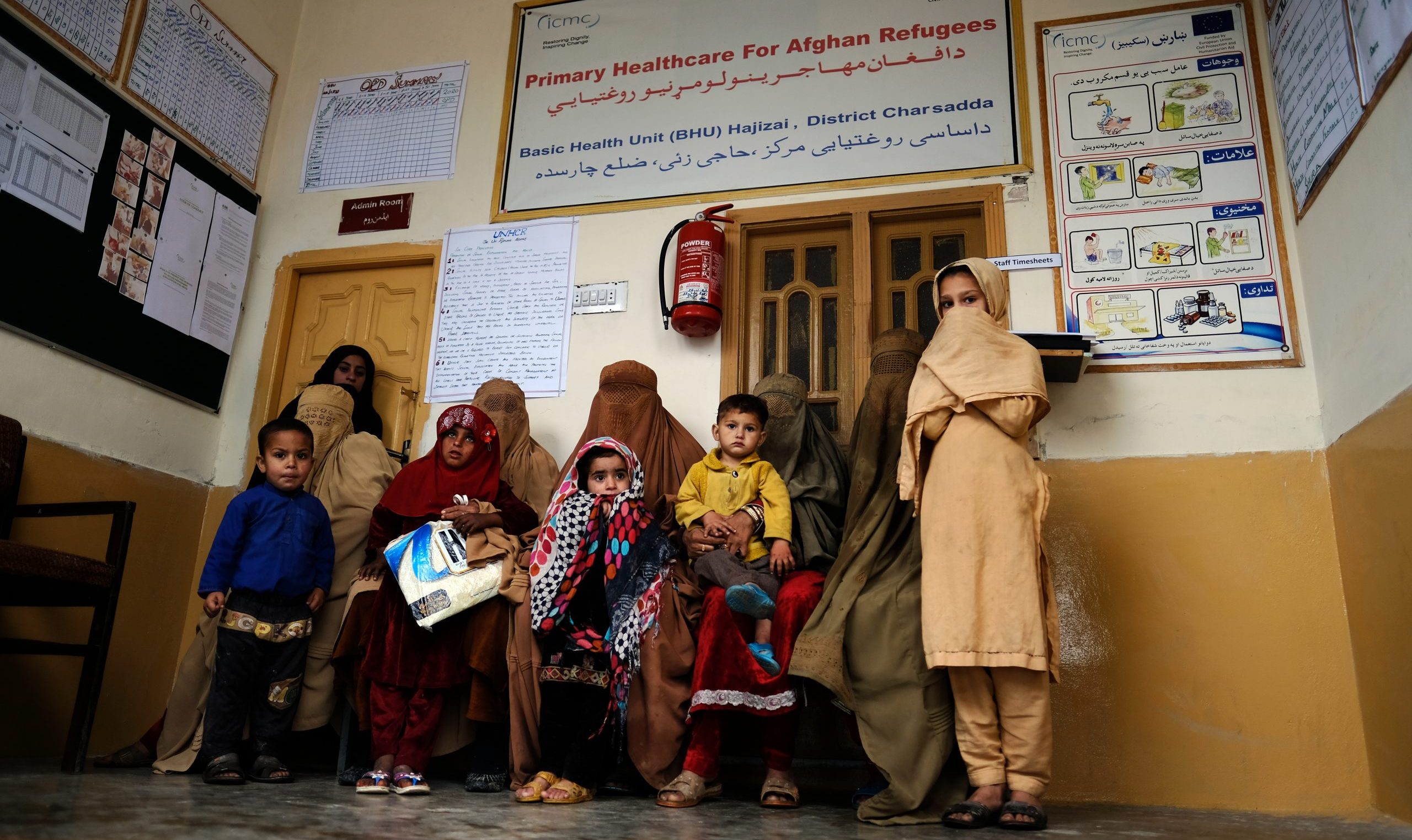
What did we learn from a Twitter chat on health systems, conflict and displaced people?
16 November 2021
On the 3 November 2021 an expert panel [all links open in new tabs] – Fouad M Fouad, Amina Jama, Sabina F Rashid, Eric Weerts and Mariam Dahir – tweeted up a storm on health systems and displaced people using the hashtag #RefugeeHealth. Kate Hawkins and Karen Miller summarise some of the main points of their discussion.
Bringing in knowledge from a wide range of geographical settings, from academia and civil society, our Twitter chat highlighted a number of challenges for the field – adopting a crisis paradigm, failure to plan, fragmented responses and inherently weak health systems – and some areas where improvements are implemented or are on the horizon.
Mental health
We heard that displacement creates increased risks to mental health and vulnerability, since displacement affects social and economic environments and people’s ability to access services. This may vary depending on whether one is internally displaced, a refugee, a forced returnee etc. In many settings physical rather than mental health is prioritised.
We were cautioned to also consider the impact of shocks and crisis on the mental health of health workers, an often overlooked group. It is also important to prioritise the mental health of people who care for those with disabilities, who are managing their responsibilities on top of the challenges that come with being displaced.
Access to services
For refugees there can be linguistic and socio-cultural differences that act as a barrier to service access. The cost of accessing services and their geographical distances from communities are enduring issues. Furthermore, absence of trust, a preference for the familiar and poor quality of care (including poor attitudes) in the formal sector may lead people to use informal networks and services. Research in Somalia suggests that internally displaced people mirror the host community’s belief that private services are better than public.
Legal status can confer access to some services and there may be a parallel system for refugees’ healthcare separate from the formal (national) one. Where displacement is protracted there is a need to move from short-term humanitarian stop gap services to a more holistic approach that meets the needs of all persons (including those with disabilities). Those who are recently displaced may have different health needs to those who have been displaced for a longer time. During our Twitter chat this led to a discussion on language. Can we say that second or third generation internally-displaced people, such as those seen in Somalia, are still ‘displaced’? This kind of labelling can create helplessness and dependency.
Homogeneity
Refugees and displaced people are not a single population; they are diverse communities with varying needs and priorities. There are varying levels of need and vulnerabilities within these populations and some may need targeted care, such as female-headed households, persons with disabilities, the elderly, adolescents and LBGTQI people. Gender-based violence is a common problem among vulnerable populations, however, it is rarely reported as people fear this will prompt further violence. Access to sexual and reproductive and child health services are a priority.
By listening carefully to these groups we can support and mobilise action. Participatory action research can help here, as can community engagement in the health system.
Involvement of displaced people in healthcare
Displaced people do not always have an intermediary or civil body that can act on their collective behalf. This can hinder their involvement in activities to improve health. Legal status also precludes their involvement in politics. A lack of participation can affect the relationships of trust that are so important in the health system.
Community-based organisations and civil society can play an important role in linking health systems and services to affected communities. Meaningful partnerships include communities in the design, planning and implementation of services, and lead to tailored services that are more fit for purpose.
Work on resilient health systems in protracted emergencies has highlighted the importance of staff and managers coming from those affected communities. They are embedded in that world and are also provided with employment opportunities.
Challenges to progress
In contexts such as Somalia, ongoing challenges include competing needs, poor health infrastructures that hardly cater for the host community and poorly managed resources.
We need a comprehensive approach to public health that goes beyond the biomedical to understand the complex drivers of health and wellbeing. Tackling ill health goes beyond the health sector and a multi-sectoral response is needed. There is a need to recognise that parallel programmes for internally displaced people and refugees – eg in relation to livelihoods, WASH and education – are often poorly coordinated and provided by a multiplicity of organisations.
Likewise, we need to shift from a humanitarian, short-term, emergency response to more sustainable, long-term and development-sensitive policy responses. Barriers to adopting a long-term approach include a political reluctance to admit that the movement of people is an ongoing dynamic which is unlikely to stop, and a lack of preparedness within the health system for sudden shocks or crises.
Improvements and opportunities
In recent times we have seen more of a development approach within the humanitarian nexus which has potential to alter the manner in which the health of displaced and migrant people is considered. Some countries have integrated refugees into the labour market, moving from a basic needs approach to a focus on more advanced requirements, particularly in relation to health and education. More work is needed to move from an emergency response to preparation and planning for sustainable futures.
Did you miss the chat?
If so, you can read Twitter Moments (collated tweets) of each question here [each link opens in a new Twitter tab]
Image: Pakistan: Healthcare services continued in Afghan refugee camps amid coronavirus outbreak.
© European Union, 2020 (photographer: Mallika Panorat). EU Civil Protection and Humanitarian Aid via Flickr